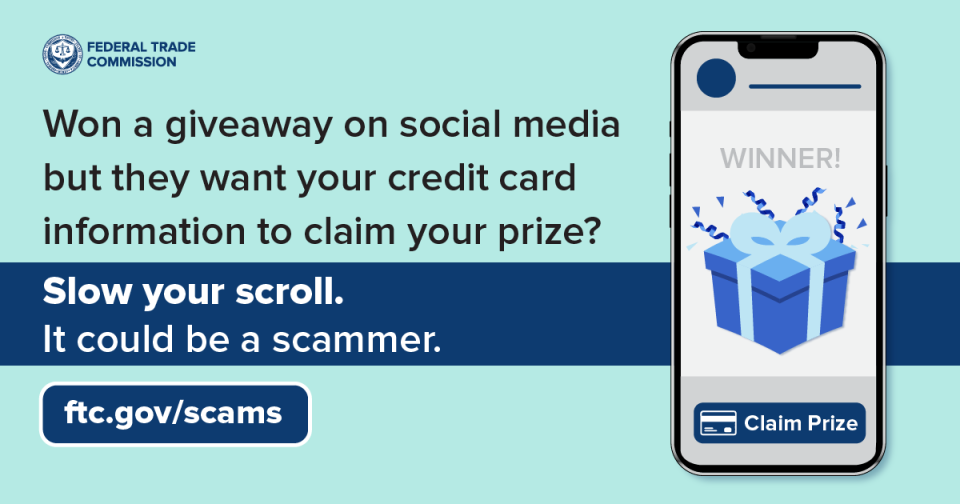You may have heard us say when you’re shopping online, check things out before checkout. The same advice applies to giveaways on social media sites like Facebook and Instagram. Here’s why: One in four people who reported losing money to fraud since 2021 said it started on social media. Scammers make it hard to tell what’s real and what’s fake. Want to avoid scams on your feed? Slow your scroll and keep reading to find out how.
If you follow your favorite businesses on social media to get updates about upcoming events or promotions, you’re not the only one. Scammers are watching too — and they may hijack legit businesses’ giveaways and promotions to try and get your personal and financial information. Imagine your favorite photographer is giving away a free photo session. You follow the steps to enter — liking their page, tagging a few friends, and sharing the post. Then someone who looks like the business owner tags you in a comment saying that you’ve won. They send you a link — and ask for financial information — to claim your prize. What’s your next step? [Hint: it rhymes with Jaws!]
Before you respond, pause. Don’t click on any links since they might contain malware. Then:
- Ask yourself: Does this business need information like my credit card number to get this free prize? If it’s legit, probably not!
- Contact the business using a phone number, email, or website that you know is real. Ask if they really sent the message. If they didn’t, report the post and let them know that their account may have been hacked.
Learn more about how to spot, avoid, and report scams—and how to recover money if you’ve paid a scammer—at ftc.gov/scams. If you spot a scam, report it to the FTC at ReportFraud.ftc.gov.


I believe social media has ways to identify websites and whether they are legit or not. There should be some sort of validation stamp issued or other identifying mark that scammers can't duplicate that we could look for similar to our phones identifying suspected SPAM so we know the person may not be legit when we answer (or chose not to answer).
Thanks for the great advice.
Ian
Good advice
thank you so much